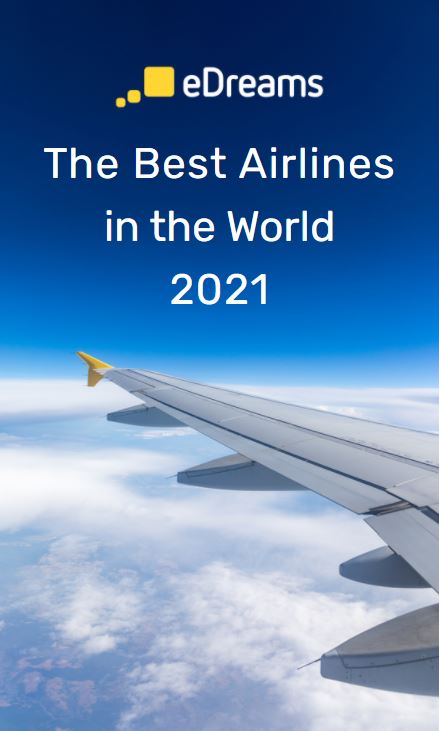Air traffic dropped 95% in April, compared to 2019.
Due to the coronavirus pandemic, the whole world ground to a halt in a way that has not been seen since the beginning of commercial aviation. Flights were grounded and many airports shut. Airline companies were able to use this time to prepare their aircraft and staff on maintaining the safest environment for travellers once air travel picked up again.

Currently, many airlines have fully or partially resumed flight operations. Both easyJet and Ryanair are progressively resuming operations – but with new rules. Tight cleaning measures have been put in place to ensure the cleanliness and sanitation onboard.
Is it safe to travel by plane now?
IATA (International Air Transport Association) testify that the air circulating inside planes is very clean and safe. Infact, according to studies made by EASA (he European Aviation Safety Agency), the air quality in an aircraft cabin is better than that found in environments such as schools, homes and offices.
As clean as an operating theatre
How do aircraft have such clean air? Modern aircraft are equipped with the same type of air filtration systems that are used in highly sanitary environments, such as operating theatres. These filters allow the air to recirculate every 2-3 minutes and manage to block and capture 99.97% of the microbes present. A percentage that, for some companies (such as Vueling), rises to 99.99%! The air on board the aircraft also has a vertical flow, from top to bottom, thus preventing any pathogens (or bad bacteria) from circulating around the aircraft from person to person.
In addition to clean air, what are the new measures taken by airlines to face this new era of air travel? Let’s see them in detail…
The new post-COVID-19 aviation security measures
At the airport
In order to ensure social distancing between passengers and staff, many companies, including Vueling, have reorganized the queueing system at check-in and customer service stations – which are regularly disinfected. The reception desks are also equipped with protection screens.

Check in
All major airlines such as British Airways, Easyjet, Emirates, Ryanair and Vueling encourage their customers to carry out most of the pre-flight procedures completely digitally and therefore recommend that you check in online to avoid people gathering in queues at the airport.
Boarding
Many airlines have now changed their boarding procedures to take place by row – this allows faster and safer access to the aircraft. Passengers cannot approach the boarding gate until their assigned row number is called and they must scrupulously follow the instructions of the ground and cabin personnel. Other airlines, such as Lufthansa, recommend passengers to use automatic boarding gates where possible.
Onboard
Please make sure your seat belt is securely fastened and your mask is in the correct position.
- All passengers must wear a mask that covers nose and mouth throughout the duration of the flight: boarding, in flight and disembarking. If a passenger does not have a mask, they will not be admitted on board.
- Strict hygiene protocols recommended by both EASA and the World Health Organization have been implemented: planes are sanitized every day with products of high sanitizing power. Special treatments are given to surfaces such as armrests, tables and overhead compartments.
- As mentioned before, planes are equipped with HEPA filters (the ones also used in hospitals) that renew air every 3 minutes. Air is purified and mixed with air from the outside. These filters eliminate particles and bacteria, such as COVID-19, with an efficiency level between 99.97% and 99.99%, ensuring a very high level of protection. The action of the filters combined with good ventilation and dry air reduces the risk of spreading the virus.
- Emirates and other airline companies provide passengers with wipes to disinfect the seat and surrounding surfaces around them.
- Duty free lovers? Unfortunately no shopping can be done at high altitudes anymore: almost all airlines have suspended this service during the flight to minimize the cabin crew’s presence in the cabin.
- The distribution and sale on board of newspapers and magazines in paper format have also been suspended.
- The use of the toilets is now managed by the crew of most companies (such as Ryanair and easyJet) in order to avoid queues and the stationing of passengers in the cabin.
- Onboard service is now carried out in a reduced format. On British Airways, special meals, including children’s meals, are currently unavailable. Customers are encouraged to bring their own food if required.
- New safety protocols have been introduced for waste management after each flight.

Baggage
Following the recommendations of the relevant authorities, airlines have decided to keep the amount of hand luggage allowed in the cabin to a minimum in order to reduce the contact between passengers and crew. Airlines such as easyJet allow customers to put their hand luggage in the hold for free.
In some cases, passengers will not be able to put any type of clothing (sweaters, jackets, etc.) in the overhead bins – they must be stored inside hand luggage before boarding.
British Airways advise customers to keep hand luggage to a minimum in order to move through the airport as swiftly as possible.

Click the following links to find the complete list of measures taken by each airline:
Now that you know all the airline security measures against COVID-19, are you ready to go on holiday this summer?
Ready to fly? Have a look at the best airlines in the world for 2021:




